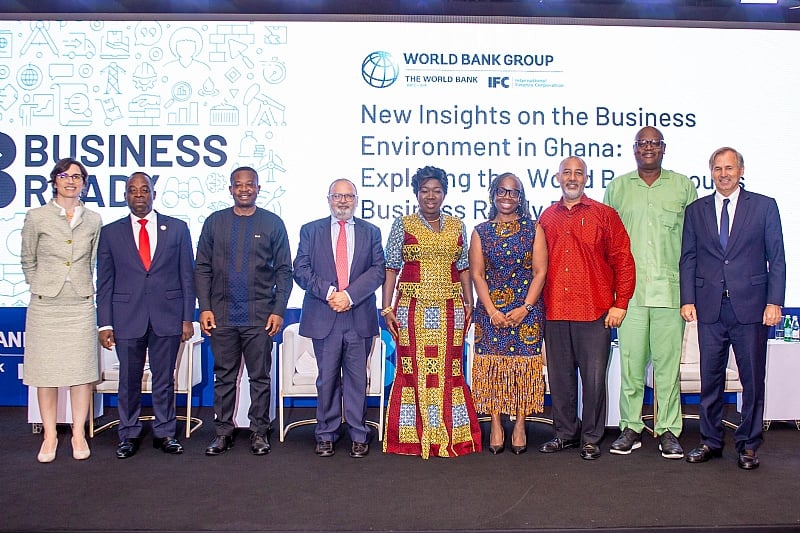Ghana’s Business Environment: Strengths, Weaknesses, and the Path to Reform
The World Bank Group’s Business Ready (B-READY) report provides a crucial assessment of Ghana’s business environment, revealing both promising strengths and persistent challenges. While the nation excels in areas like labor market regulations and utility provision, significant bottlenecks hinder its progress, notably in business registration, property transfer, construction permitting, access to credit, and dispute resolution. These inefficiencies stifle economic growth and deter much-needed investment. Addressing these issues is paramount for Ghana’s continued development.
The report, launched in Ghana, prompted a call to action from World Bank representatives and Ghanaian government officials alike. Robert Taliercio O’Brien, World Bank Division Director for Ghana, Liberia, and Sierra Leone, underscored the urgency of tackling bureaucratic hurdles and regulatory complexities while acknowledging Ghana’s positive performance in certain areas compared to other Sub-Saharan African nations. Hon. Elizabeth Ofosu Ajare, Minister for Trade, Industry, and Agribusiness, echoed this sentiment, reaffirming the Ghanaian government’s commitment to streamline regulatory frameworks, minimize bureaucratic delays, and foster a competitive business environment through the Business Regulatory Reform (BRR) Programme. This commitment recognizes that a robust and efficient regulatory environment is crucial for maximizing the impact of Ghana’s economic transformation agenda.
Valeria Perotti, Manager of the B-READY unit at the World Bank, emphasized the report’s function as a diagnostic tool, providing a roadmap for targeted reforms. The report’s methodology, incorporating global benchmarking, allows for a comparative analysis of Ghana’s performance against peer economies, highlighting areas where strategic interventions can unlock growth potential. The B-READY initiative moves beyond simple rankings to offer actionable insights for governments aiming to create a business environment that is efficient, transparent, and attractive to investors.
A panel discussion featuring prominent figures from both the public and private sectors delved into practical solutions for enhancing Ghana’s business climate. Participants included Simon Madjie (GIPC), Alexander Mould (MiDA), Mavis Owusu Gyamfi (ACET), Seth Twum Akwaboah (AGI), and Ashok Mohinani (Mohinani Group). The discussion focused on the imperative of digitalizing regulatory processes, simplifying tax and trade procedures, and strengthening public-private collaboration. These strategies were identified as key drivers for creating a more conducive business environment.
The World Bank Group, represented by Kyle Kelhofer, Senior Country Manager for Ghana, Liberia, and Sierra Leone at the International Finance Corporation (IFC), pledged continued support for Ghana’s economic transformation. This support encompasses financial and technical assistance targeted at implementing key reforms, including investments in infrastructure, digital transformation of public services, and bolstering credit systems to improve financial access for businesses. This commitment reinforces the World Bank Group’s dedication to fostering sustainable economic growth in Ghana.
The B-READY report serves as a critical assessment of Ghana’s business environment, highlighting both strengths and weaknesses. The report’s findings underscore the urgent need for targeted reforms to address bureaucratic inefficiencies and regulatory bottlenecks, particularly in areas such as business registration, property transfer, and access to credit. The Ghanaian government, in conjunction with the private sector, must prioritize the implementation of these reforms to stimulate economic growth and attract investment. The World Bank Group’s commitment to providing financial and technical support further strengthens Ghana’s capacity to implement these necessary changes. The collaborative effort between policymakers, the private sector, and international development partners is crucial for unlocking Ghana’s full economic potential and ensuring sustainable development. The focus on digitalization, simplification of procedures, and enhanced public-private partnership offers a promising pathway towards creating a more competitive and investor-friendly business environment.














